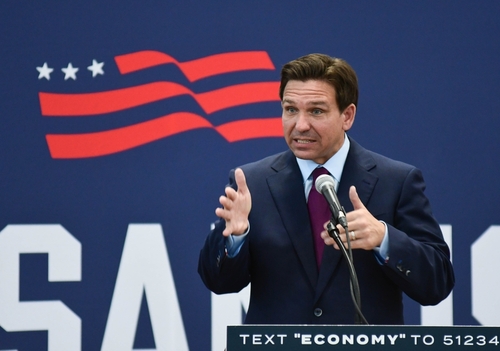Listen To Story Above
World leaders reacted with measured optimism to Russian President Vladimir Putin’s conditional acceptance of ceasefire terms, while Ukraine’s President Volodymyr Zelensky expressed skepticism, characterizing Moscow’s response as a calculated move to impede progress.
American negotiators met with Russian officials in Moscow on Thursday to discuss the initial phase of President Trump’s peace initiative – a proposed 30-day ceasefire. While Putin expressed general support for the concept, he emphasized the need for further discussions with American counterparts before reaching any agreement.
Moscow’s stance remained essentially unchanged, insisting on peace solely under its preferred conditions. In response, Zelensky interpreted Putin’s seemingly positive but noncommittal statements as a strategic maneuver to prolong the conflict to Russia’s advantage.
“We have all heard from Russia Putin’s highly predictable and manipulative words in response to the idea of a ceasefire on the front lines – at this moment he is, in fact, preparing to reject it. Of course, Putin is afraid to tell President Trump directly that he wants to continue this war and keep killing Ukrainians,” Zelensky stated.
Putin says Russia tentatively agrees with propositions of ceasefire, BUT it must lead to “permanent peace and remove original causes of crisis.” Putin will be calling Trump to finalize more details. pic.twitter.com/sI7wqZVjnh
— Ian Miles Cheong (@stillgray) March 13, 2025
According to Zelensky, Putin’s strategy involves introducing increasingly difficult preconditions until reaching an agreement becomes impossible. “Putin does this often – he doesn’t say ‘no’ outright, but he drags things out and makes reasonable solutions impossible. We see this as yet another round of Russian manipulation.”
While Zelensky’s observations hold merit, Ukraine has employed similar tactics. Before Thursday’s talks commenced, a senior Putin advisor dismissed the ceasefire terms as too favorable to Ukraine, suggesting they required renegotiation. Both sides have accused each other of using ceasefires to regroup and strengthen their military positions.
Ukraine’s own negotiating history includes attempts to leverage better terms through preconditions. Last month, Zelensky’s unsuccessful attempt to secure absolute U.S. security guarantees before signing President Trump’s minerals deal resulted in temporary disruptions to military support.
Having now accepted Trump’s ceasefire proposal, Ukraine emphasizes its cooperative stance. Zelensky remarked overnight: “Ukraine is ready to work as quickly and constructively as possible… We are not setting conditions that complicate the process – Russia is.”
🚨 BREAKING: @POTUS Trump’s Push for Peace in Ukraine Takes Major Step Forward 🚨
After 8 hours of high-stakes talks in Jeddah, Saudi Arabia, Ukraine has accepted a U.S.-led proposal for a 30-day ceasefire. Now, the ball is in Russia’s court. Will Putin accept and finally bring… pic.twitter.com/bvdmwnFVoj
— Francois Leclerc (@f_leclerc20037) March 11, 2025
“As we have always said, the only one stalling, the only one being unconstructive, is Russia. They need this war. Putin has stolen years of peace and continues this war day after day. Now is the time to increase pressure on him. Sanctions must be applied – ones that will work.”
Ukrainian Foreign Minister Andrii Sybiha reinforced these sentiments, stating: “This is the difference. Ukraine said ‘yes’ to US ceasefire proposal. Because Ukraine wants peace. Putin, rather than saying ‘yes’, puts forward various conditions. Ukraine seeks an end to the war. Putin seeks to continue the war. The rest of his words are just a smokescreen.”
President Trump acknowledged the preliminary nature of Putin’s response but expressed hope for direct discussions. Speaking from the Oval Office, he revealed ongoing negotiations regarding territorial divisions in a potential peace agreement.
European leaders responded positively to Putin’s statements, with Britain’s Prime Minister describing it as a “remarkable breakthrough” and Poland’s Prime Minister Tusk calling it a “crucial step towards peace.” The European Union expressed interest in joining negotiations, having been largely excluded thus far.






